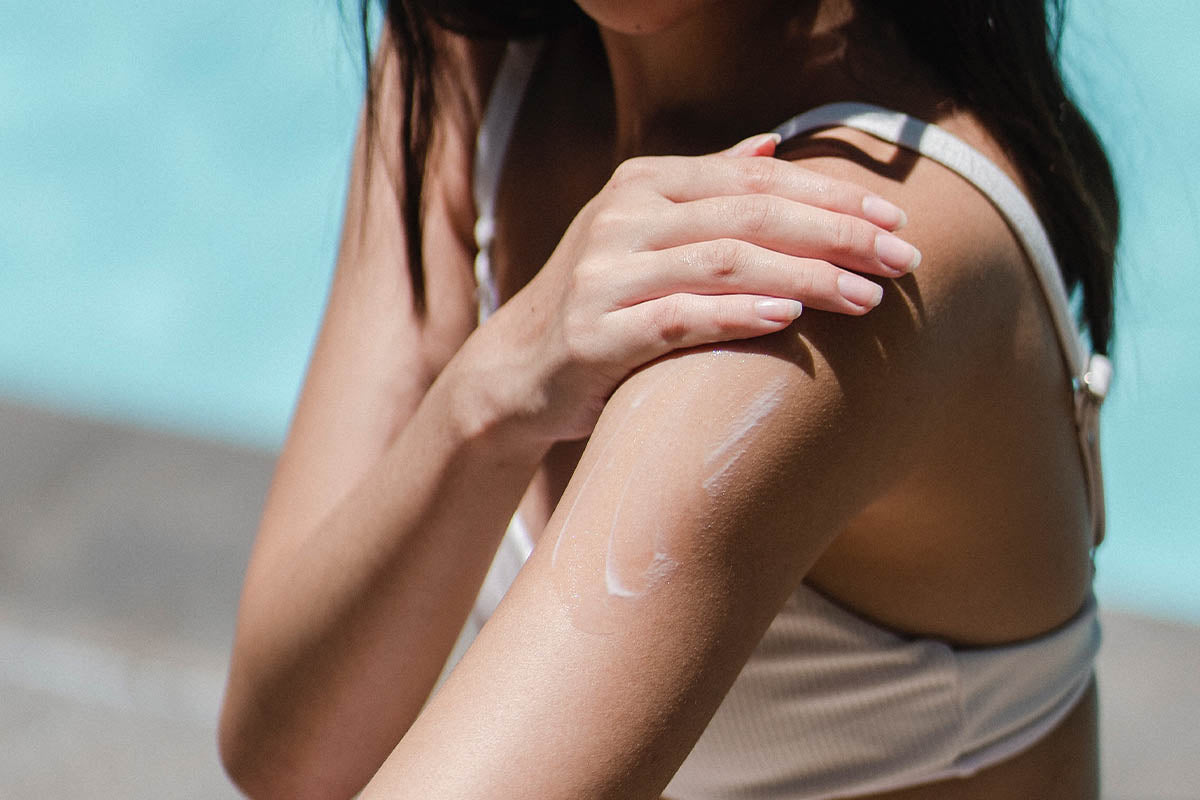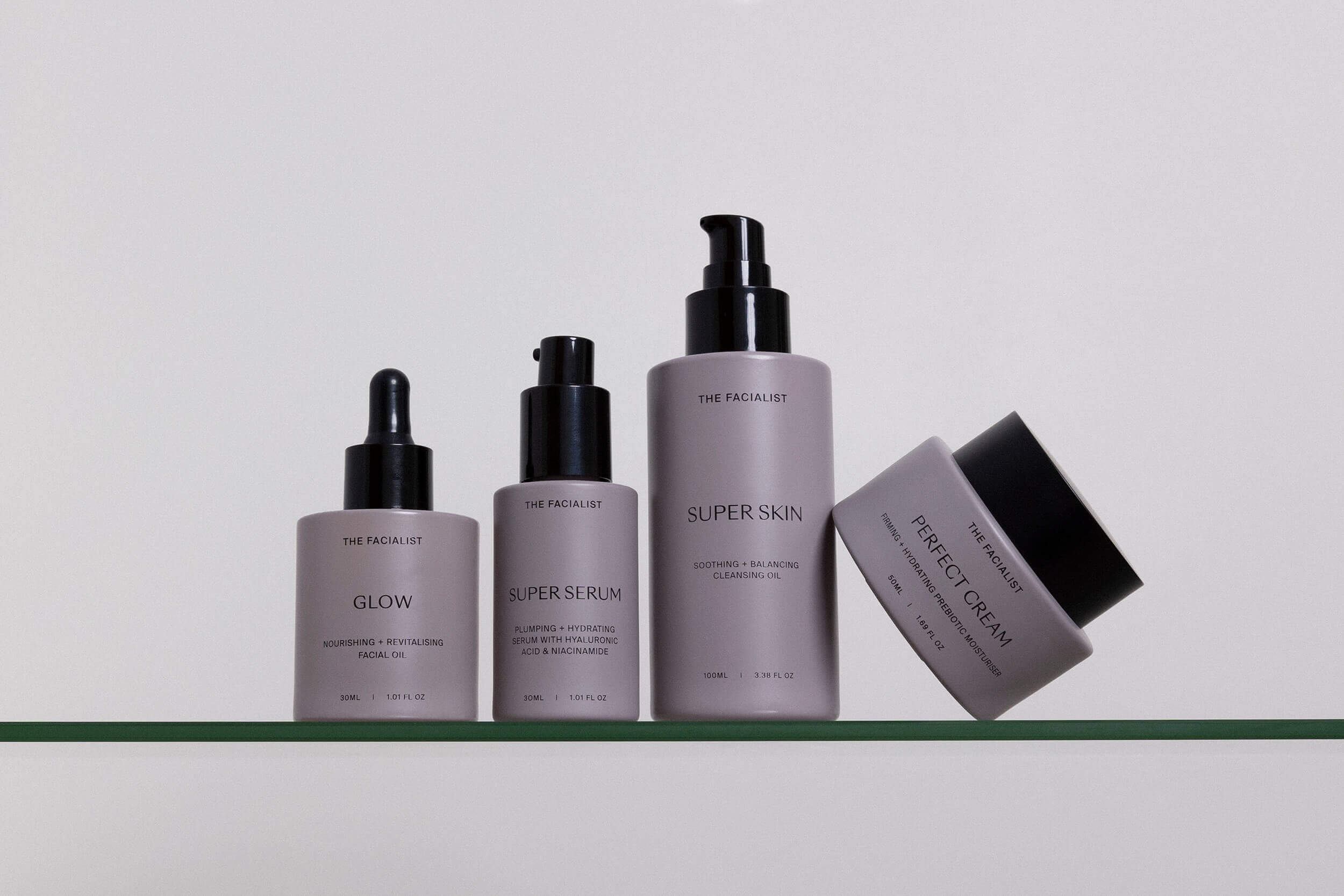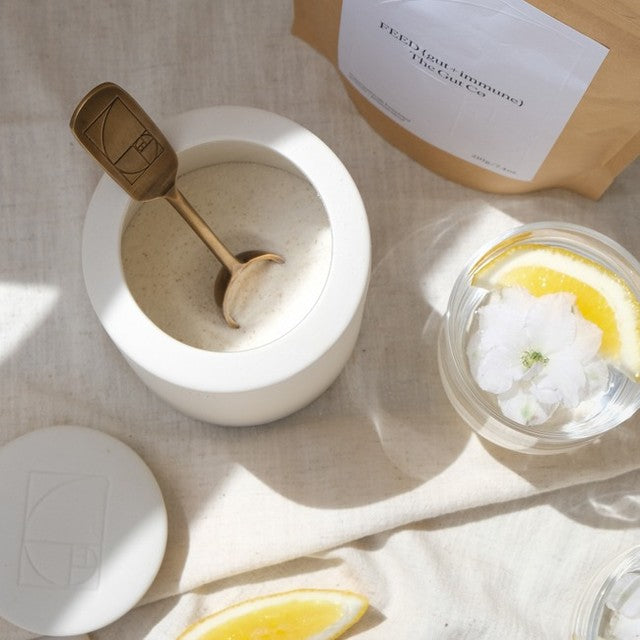Physical Vs Chemical Sunscreen

Same, Same, But Different.
While both chemical and physical sunscreens effectively protect your skin from the damaging effects of the sun, the key difference is the ingredients used to provide that protection and how. Chemical sunscreen ingredients work by absorbing UV radiation and converting it into heat energy (harmless to the skin), while physical sunscreen ingredients deflect the sun’s rays in order to protect the skin.
Choosing one that’s right for you may require more explanation. Ashleigh elaborates on each and shares her faves on The Beauty Report. Put your best face forward this summer (and thereafter*.)
*We’ve said it before and we will say it again: Your skin deserves protection, year-round.
PHYSICAL SUNSCREEN
Also known as mineral sunscreen, most of the time boasts a more natural and organic-based ingredient list. Zinc or titanium oxide, sometimes both are the heroes here. These ultra-fine minerals sit on the skin surface and act as a physical barrier. Reflecting the sun’s rays, and significantly reducing the risk of burn and hyperpigmentation. While zinc has come a long way since our childhood (we’ve all got that classic beach snap sporting white tiger stripes under the eyes and down the nose) with some beautiful and nourishing formulas that glide on with ease and blend into the skin better than before. The case remains that they can be thicker and whiter in consistency than their chemical peers.
Physical sunscreens require a higher concentration of active ingredients, and while they’ve improved dramatically over the past decade, can still have that white ‘ghosting’ effect on the skin. Another thing to consider is that the ingredients are (generally speaking) often kinder to both the skin, and the sea. Something we take into consideration when we are choosing which brands to offer at The Facialist.
Natural beauty is at the core of our belief system, we believe in the raw potential of nature and its ability to nurture our skin. It is exciting that the beauty industry is seeing huge growth toward natural innovation and green science with deep consideration for both people and the planet. As technology continues to improve (as it already has), we'll see even lighter weight, less-ghosting physical formulas.
Some of our current favourites include Coola Mineral SPF with hydrating ingredients as potent as their SPF counterparts and the P4O SPF 50, with no fillers a little goes a long way.
Like all skincare, the preference will depend on the individual. Your skin type, your personal values, and preferred consistency. As physical sunscreens sit on the surface of the skin rather than penetrating in, they are often a better option for more sensitive skin types (but not necessarily for the acne-prone). P4O is also a great option for young children, recommended from 3 months.
CHEMICAL SUNSCREEN
Not as scary as it sounds. The most common type of sun protector on the market. Largely because they’re easiest to formulate, and from a usability point of view - resulting in a more transparent, lightweight consistency that’s less detectable on the skin.
Rather than deflecting UVA and UVB rays, chemical formulas convert sunburn-causing UV rays into harmless heat on human skin, rendering them powerless rather than causing sun damage. This comes down to an effective combination of difficult-to-pronounce chemicals which don’t necessarily require large concentrations to be effective.
Chemical sunscreens can have a silky, non-greasy feel, and sink into the skin like a moisturiser. Their ingredient list can be hard to navigate, taking into consideration the effect on both the skin and the environment. We are ALWAYS looking for and evaluating our sun care offering. You can trust we have done the work for you and our current favourite chemical formulations are from Coola. We call it ‘The invisible layer’. With Reef compliant and organic ingredients, this fragrance-free sunscreen for the face provides light-as-air protection that is amazing on its own or layers perfectly under makeup.


